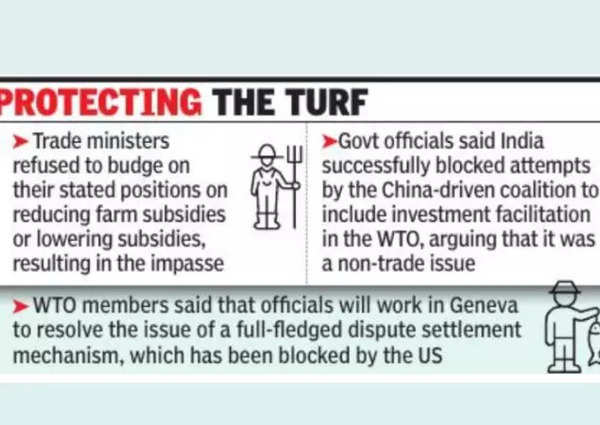Indian officials appeared satisfied with the outcome, arguing that they did not yield ground on any of the issues and the permanent peace clause on procurement of foodgrains for the public distribution system gave govt the freedom to buy as much as it wanted despite the “flawed formula” which counted payments above Rs 3.20 a kg of wheat or rice as subsidy.The permanent peace clause means that despite breaching the ceiling of 10% of value of production, linked to prices prevailing in 1986-88, countries cannot be dragged to WTO for violation of trade rules.

Some countries were pushing WTO members to link the issue of public stockholding of grains to overall reform of global farm trade, which India and other members of G-33 were unwilling to accept, arguing that the issue was delinked from the overall talks and the members had failed to come out with a solution for more than a decade.
Sources also said that India’s concerns on fisheries remained as members failed to produce a draft which would result in developed countries such as Sweden offering $80,000 to their fisherfolk but limited the ability of developing and poor countries to increase their support. “The draft was like what was given to us for agriculture during the Uruguay Round (in the 1980s). We will face the same consequences as agriculture if we want to grow later. Do they think we are living in the eighties?” said an official. Besides, no clear timeframe was provided for transitioning to the new regime.
WTO members said that officials will work in Geneva to resolve the issue of a fullfledged dispute settlement mechanism, which has been blocked by the US. Govt officials said India has managed to successfully block attempts by the China-driven coalition to include investment facilitation in the WTO, arguing that it was a non-trade issue. Similarly, they said, other non-trade subjects such as industrial policy and environment were not acceptable.